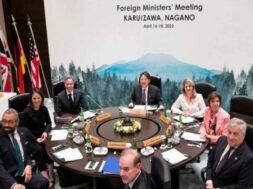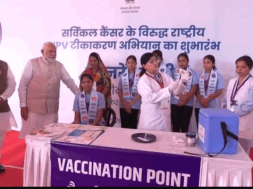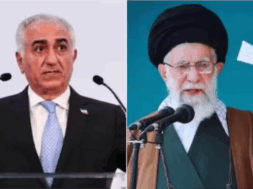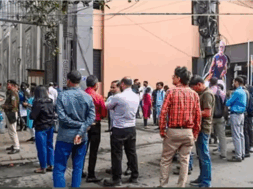
G-7: FMs warn Russia, and underscore India’s importance in the Indo-Pacific
Virendra Pandit
New Delhi: At the end of their conference in Japan, the Foreign Ministers of the Group of Seven nations warned that any Russian use of nuclear weapons would be met with ‘severe consequences’, as they also underscored cooperation with India in view of its importance in the Indo-Pacific Region.
They also reaffirmed their unwavering support for ASEAN centrality and unity and commitment to promoting cooperation in line with the ASEAN Outlook on the Indo-Pacific, the media reported on Wednesday.
The G-7 foreign ministers reiterated the importance of a “free and open Indo-Pacific” and cooperating with India and reaffirmed their commitment to promoting cooperation in line with the ASEAN outlook on the Indo-Pacific.
Their comments mark the culmination of a three-day meeting held in Karuizawa, Nagano, in Central Japan, ahead of the G-7 leaders’ summit to be held in Hiroshima next month.
“We reiterate the importance of a free and open Indo-Pacific, which is inclusive, prosperous, secure, based on the rule of law, and that protects shared principles including sovereignty, territorial integrity and peaceful resolution of disputes, fundamental freedoms, and human rights,” their joint communique stated.
“We reaffirm individual initiatives of the G7 members and welcome those of our partners to enhance their engagement with the region. We underscore our commitment to further strengthening our coordination among the G-7 on the region, to working with regional partners, including ASEAN and its member states,” it read.
The Ministers also reaffirmed their partnership with the Pacific Island countries and reiterated the importance of supporting their priorities and needs, in accordance with the Pacific Islands Forum’s 2050 Strategy for the Blue Pacific Continent, including through the 4th International Conference on Small Island Developing States (SIDS) in 2024.
“We welcome and further encourage efforts made by the private sector, universities, and think tanks, which contribute to realizing a free and open Indo-Pacific,” they said.
On April 17, the second day of the G7 Foreign Ministers’ meeting, Japan’s Foreign Minister Hayashi Yoshimasa, hosted the “Indo-Pacific” session, explaining his country’s views on “Free and Open Indo-Pacific (FOIP)” and the New Plan for a FOIP. The G-7 Foreign Ministers expressed their support, the Ministry of Foreign Affairs of Japan said.
Yoshimasa also said that with the emerging and developing countries, now known as the “Global South”, facing a variety of issues, the G-7 intends to work with them to tackle these issues.
“Furthermore, in addition to underscoring the importance of cooperating with India, the G-7 Foreign Ministers shared the view to increase engagement in the Indo-Pacific region, including ASEAN and the Pacific Island countries, and, as part of the G-7 framework, to regularize discussions and strengthen cooperation in relation to the Indo-Pacific,” the Japanese Ministry of Foreign Affairs said.
On March 20, Prime Minister Fumio Kishida unveiled in New Delhi the Japanese plan for a FOIP while delivering a speech entitled “The Future of the Indo-Pacific-Japan’s New Plan for a ‘Free and Open Indo-Pacific-Together with India, as an Indispensable Partner.”
He had said “India is an indispensable partner” to achieve the objectives of FOIP.
The G-7 Foreign Ministers meeting was presided FM Yoshimasa and attended by U.S. Secretary of State Antony Blinken, German Foreign Minister Annalena Baerbock, U.K. Foreign Secretary James Cleverly, Canadian Foreign Minister Melanie Joly, French Foreign Minister Catherine Colonna, Italy’s Foreign Minister Antonio Tajani, and Deputy Secretary-General of the European External Action Service (EEAS) Enrique Mora.













